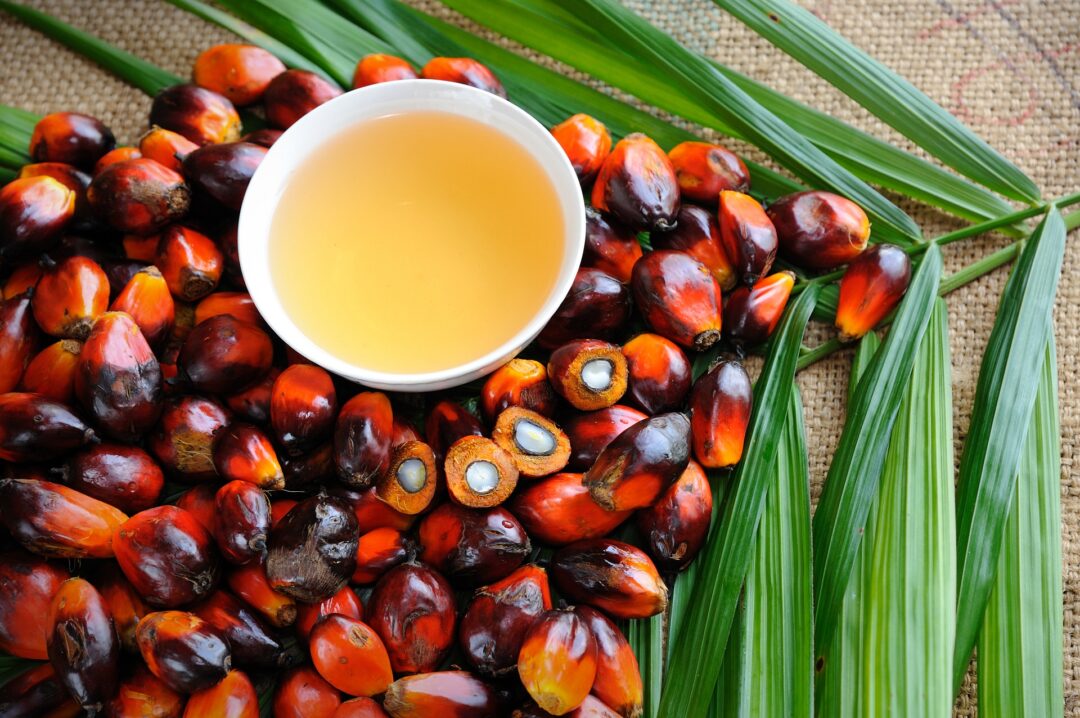Once a sound bite gets repeated often enough to achieve the status of “accepted “truth,” it’s pretty hard to dislodge. But we myth-busters are a hardy lot, and we don’t give up.
Myth-busters in the last decade have given a resounding thumbs-down to a lot of baked-in ideas about nutrition and health that turned out to be wrong. For example, all of the following myths have now been, for the most part, discarded by health professionals who have stayed current with the science:
- Coffee is a health hazard.
- “Vegetable oil” is healthy and saturated fat is “bad.”
- Canola oil is a health food.
- Agave nectar is a healthy substitute for sugar.
- Cholesterol causes heart disease.
- High-carb, low-fat diets protect your heart.
- Vegans live longer.
Which brings us to palm oil.
Why Does Palm Oil Get A Bad Rap?
When products in the grocery store start sporting labels that proudly proclaim theabsenceof a certain ingredient, you can be pretty sure that in the public’s mind—rightly or wrongly—that particular ingredient is a very bad thing. (Witness all the products that claim “no trans fats” or “no cholesterol.”) The fact that there are food labels proudly proclaiming “absolutely no palm oil” is a clear demonstration that palm oil has officially attained the status of “demonized food”—one that you should surely stay away from.
But is that true?
There are two bad raps against palm oil. One, that it’s a saturated fat (which of course everyone knows is “bad”), and two, that the production of palm oil devastates the environment, particularly the rainforest, and harms or destroys the habitat of animals, particularly the beloved and gentle orangutans.
One of these myths is boneheaded nonsense. The other contains a grain of disturbing truth but is missing contextual facts.
Let’s start with the easy one: Palm oil should be avoided because it is a saturated fat!
Does Saturated Fat Give You Heart Disease?
Starting in 2010, the research community started producing major, peer-reviewed, published literature testing the hypothesis that eating a lot of saturated fat gives you heart disease.
In study, afterstudy (1)afterstudy (2) afterstudy (3), this was shown to be false.
In fact, one student in England did her Ph.D. thesis on the global anti-saturated fat dietary guidelines, investigating whether there was actual published science that supported the guidelines that were adopted just about everywhere.
Her conclusion was a resounding “No!” Her thesis was published in theBritish Medical Journalin 2016 and earned Dr. Zoe Harcombe her doctorate. It’s title?“Dietary Fat Guidelines Have No Evidence Base” (4)
Just as this was being written, the American Journal of Cardiology’s editorial department announced the 100 most outstanding research papers of the year. One of them was a massive re-evaluation of saturated fat. Its conclusion: “There is no (good) evidence that….arbitrary upper limits on saturated fat consumption in the United States will prevent cardiovascular disease or reduce morality” (5).
Health Benefits of Palm Oil
What’s more as emerging research is showing, there are saturated fats that are fairly neutral in terms of their effect on health, and there are saturated fats that are actuallygood for you. Malaysian palm oil is a rich red color because it’s rich intocotrienols andcarotenoids, classes of beneficial plant compounds that are loaded with health benefits. (For example, tocotrienols significantly protect the brain after a stroke (6), demonstrating its strong brain-friendly properties. And carotenoids are the family of plant chemicals that include beta-carotene.)
But What About the Environment?
The second “bad rap” against palm oil is that the growing and harvesting of palm plants deforests the environment and displaces animals, destroying their natural habitat. In the past this has been true, and in some places in the world, sadly, it still is. But it’snotthat wayeverywhere, and there are significant steps being taken globally to make sure that very soon it will not be that wayanywhere.
About 85% of all palm oil comes from Indonesia and Malaysia, but other countries—like Nigeria, Thailand, Columbia, Guatemala, Papua New Guinea and Ecuador—are also players. (Ecuador in particular has been especially committed to helping palm oil producers switch to sustainable methods and achieve RSPO certification—more on RSPO in a moment!)
It is true that all of the countries that produce palm oil have not been equally cognizant of environmental concerns, and deforestation has certainly occurred in many of them, though that is changing. But not all countries have been bad actors—far from it. Malaysia in particularly has been remarkably pro-environment, protecting at least half of the nation’s land as forest cover. Malaysia even has its own version of the RSPO, called the Malaysian Palm Oil Certification, and mandated that all palm oil producers must be certified by 2020.
What is Certification?
Sixteen years ago, in response to environmental concerns around the production of palm oil, a group was formed called the RSPO—Roundtable on Sustainable Palm Oil. They developed a list of environmental and social criteria that companies must comply with in order to produce Certifiable Sustainable Palm Oil.
There is an enormous push to get all the palm oil producing companies on board with the RSPO (or in Malaysia’s case, the MSPO) certification. Ecuador has been particularly active in creating initiatives to push more and more producers to achieve RSPO certification. And Malaysia itself has become a model for sustainable palm production that does not harm animal habitats.
So Should I Boycott Palm Oil?
In a word, no. What we should do instead is support the efforts to makeallpalm oil production—not just in Malaysia—sustainable. Those efforts are real, and they’re not going away. Even the World Wildlife Federation—a frequent critic of the palm oil industry—seems to have changed its tune. In a recent posting (8 Things To Know About Palm Oil) they wrote, “RSPO represents the largest, independent, third-party standard for the sustainable production of palm oil. Certified palm oil protects the environment and the local communities who depend on it for their livelihoods, so that palm oil can continue to play a key role in food security.” They go on to say, “The RSPO has a production standard that sets best practices producing and sourcing palm oil, and it has the buy-in of most of the global industry.”
There are now easy tools online to find out if the palm oil you’re buying is certified (7). Rather than boycotting this terrific oil (see below), we should support the exploding movement to make all palm oil—not just that produced in Malaysia—environmentally sustainable. Because that is definitely the wave of the future.
Why Palm Oil is Here to Stay—And Why We Should Be Glad it is
Palm oil is to the rest of the world what olive oil is to the Mediterranean. A whopping 35% of the entire world’s supply of “vegetable oil” comes from palm. It’s an incredibly efficient crop, meaning that producing the same amount of another oil—like soybean oil, for example—would require anywhere between 4 and 10 times the amount of land, which would just create a whole new set of problems. What’s more, millions of smallholder farmers (and their families) depend on producing palm oil for their livelihood.
The answer to the deforestation issue is not to ban or boycott palm.
It’s to support the efforts of countries like Malaysia and Ecuador to make this wonderful, healthy food 100% sustainable everywhere in the world.
Nowthat’san achievable—and worthwhile—goal.
7 Top Health Benefits of Palm Oil
- Red palm oil has more carotenoids than either carrots or tomatoes. (Carotenoids include beta-carotene, which has been associated with reduced risks of heart disease and cancer.)
- Palm oil is non-GMO.
- Palm oil has no trans fats—it is not hydrogenated.
- Palm oil stands up well to heat, with a smoke point of just under 450 degrees (8).
- Palm oil is cholesterol-neutral.
- Unlike most high omega-6 “vegetable” oils—is not pro-inflammatory.
- Palm oil is a rich source of tocotrienols, a form of vitamin E that has been shown to be protective of the brain (9,10,11).
- www.ncbi.nlm.nih.gov/pmc/articles/PMC2824152/
- pubmed.ncbi.nlm.nih.gov/26268692/
- www.nature.com/articles/s41598-019-49911-6
- www.researchgate.net/publication/310617061_Dietary_fat_guidelines_have_no_evidence_base_Where_next_for_public_health_nutritional_advice
- www.jacc.org/doi/full/10.1016/j.jacc.2020.05.077
- www.ahajournals.org/doi/full/10.1161/STROKEAHA.113.004449
- www.palmoilscorecard.panda.org/
- www.bonappetit.com/test-kitchen/ingredients/article/types-of-cooking-oil
- www.ncbi.nlm.nih.gov/pmc/articles/PMC3065441/#:~:text=tissue%20%5B25%5D.-,Palm%20oil%20is%20one%20of%20the%20most%20abundant%20natural%20sources,%25%20tocopherols%20and%2070%25%20tocotrienols.
- pubmed.ncbi.nlm.nih.gov/26075031/
- www.sciencedaily.com/releases/2011/07/110705150917.htm#:~:text=2-,'Gifted'%20natural%20vitamin%20E%20tocotrienol%20protects%20brain,against%20stroke%20in%20three%20ways&text=Summary%3A,a%20stroke%2C%20new%20research%20shows










